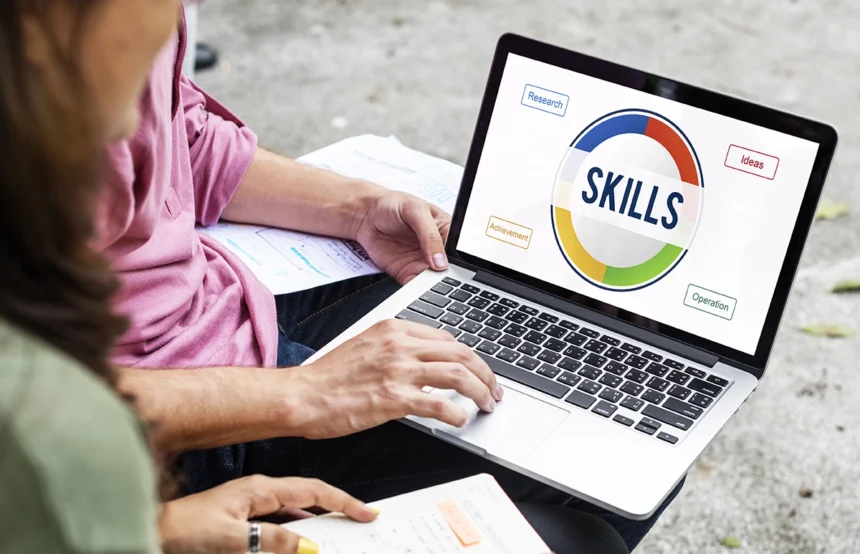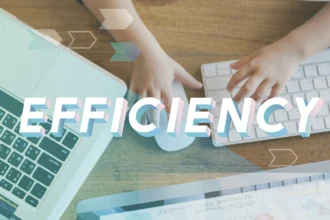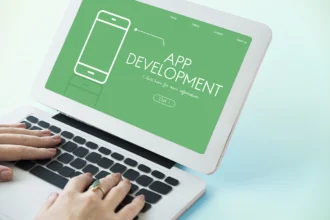Introduction
Have you ever felt overwhelmed by the need to learn new skills quickly, whether for a job, a hobby, or personal growth? In today’s fast-paced world, mastering new abilities efficiently is essential. But how can you accelerate your learning process without compromising on quality? This article explores practical strategies and tips that will help you learn new skills quickly and effectively.
Why Quick Learning Matters
In an era where technology and industries evolve rapidly, the ability to learn new skills swiftly can set you apart from the competition. Whether you’re a student, a professional, or a lifelong learner, adopting quick learning techniques can enhance your adaptability and success.
Engaging Questions to Pique Your Interest
- Ever wondered how some people seem to learn new skills almost effortlessly?
- Curious about practical tips that can make learning more efficient and enjoyable?
- Looking for ways to apply quick learning techniques in your daily life?
If you answered “yes” to any of these questions, you’re in the right place. Let’s dive into the world of quick learning and discover how you can achieve your learning goals efficiently.
Practical Tips to Learn New Skills Quickly
1. Set Clear, Achievable Goals
Setting specific and realistic goals is the first step toward quick learning. Break down your main objective into smaller, manageable tasks. This approach not only makes the process less daunting but also allows you to track your progress.
2. Focus on One Skill at a Time
Multitasking can hinder your learning efficiency. Concentrate on mastering one skill before moving on to the next. This focus ensures deeper understanding and retention of the new skill.
3. Use Active Learning Techniques
Active learning involves engaging with the material actively rather than passively. Techniques such as summarizing information, teaching others, and applying what you’ve learned in real-life scenarios can significantly boost your learning speed.
4. Leverage Online Resources and Courses
The internet is a treasure trove of educational resources. Platforms like Coursera, Udemy, and LinkedIn Learning offer courses on virtually any topic. Enroll in these courses to gain structured and high-quality knowledge.
5. Practice Deliberately
Deliberate practice involves focused and repetitive practice of specific skills. Identify your weaknesses and work on them systematically. Regular practice not only reinforces your learning but also builds muscle memory.
Quick Learning Techniques
1. Spaced Repetition
Spaced repetition is a learning technique that involves reviewing information at increasing intervals. This method takes advantage of the psychological spacing effect, which helps in long-term retention of knowledge.
2. Mnemonics and Memory Aids
Mnemonics are memory aids that help you remember information through association. Techniques like acronyms, visualization, and rhymes can make recalling information easier and faster.
3. Mind Mapping
Mind mapping is a visual tool that helps organize information logically. Creating mind maps can help you see the bigger picture and understand how different concepts are interconnected, making learning more efficient.
4. The Feynman Technique
Named after physicist Richard Feynman, this technique involves explaining a concept in simple terms as if teaching it to someone else. Simplifying complex ideas can deepen your understanding and reveal gaps in your knowledge.
5. The Pomodoro Technique
The Pomodoro Technique involves breaking your study sessions into short, focused intervals (usually 25 minutes) followed by a short break. This method helps maintain concentration and prevents burnout.
Practical Learning Tips for Different Contexts
Learning a New Language
- Immerse yourself in the language by watching movies, reading books, and conversing with native speakers.
- Use language learning apps like Duolingo and Babbel for structured lessons.
- Practice speaking and writing regularly to reinforce your learning.
Mastering a Musical Instrument
- Start with the basics and gradually move to more complex pieces.
- Practice consistently, even if for short periods, to build muscle memory.
- Listen to music actively and try to replicate the techniques used by professionals.
Acquiring Technical Skills
- Enroll in online courses that offer hands-on projects and real-world applications.
- Join forums and communities where you can ask questions and share knowledge.
- Work on personal projects to apply what you’ve learned and gain practical experience.
Table: Quick Learning Techniques and Practical Tips
| Technique/Tip | Description |
|---|---|
| Set Clear, Achievable Goals | Define specific, measurable objectives and break them into smaller tasks to track your progress easily. |
| Focus on One Skill at a Time | Concentrate on mastering one skill before moving on to another to deepen understanding and retention. |
| Use Active Learning Techniques | Engage with the material through summarizing, teaching others, and real-life application to enhance retention. |
| Leverage Online Resources | Utilize platforms like Coursera, Udemy, and LinkedIn Learning to access structured courses on various subjects. |
| Practice Deliberately | Focus on repetitive practice of specific skills, identifying and improving weaknesses systematically. |
| Spaced Repetition | Review information at increasing intervals to improve long-term retention through the psychological spacing effect. |
| Mnemonics and Memory Aids | Use techniques like acronyms, visualization, and rhymes to aid memory and make recall easier. |
| Mind Mapping | Organize information visually to understand the relationships between concepts, making learning more efficient. |
| The Feynman Technique | Explain concepts in simple terms as if teaching someone else to deepen understanding and identify gaps in knowledge. |
| The Pomodoro Technique | Break study sessions into short intervals (25 minutes) followed by short breaks to maintain concentration and avoid burnout. |
| Learning a New Language | Immerse in the language through media, apps, and conversation; practice speaking and writing regularly. |
| Mastering a Musical Instrument | Start with basics, practice consistently, and listen actively to improve technique and understanding. |
| Acquiring Technical Skills | Enroll in hands-on online courses, engage in community forums, and work on personal projects to gain practical experience. |
Frequently Asked Questions (FAQs)
Q1: How long does it take to learn a new skill? A: The time required varies depending on the complexity of the skill and your prior experience. However, using quick learning techniques can significantly reduce the learning time.
Q2: Can anyone learn new skills quickly? A: Yes, with the right mindset and techniques, anyone can enhance their learning speed and efficiency.
Q3: What are some common obstacles to quick learning? A: Common obstacles include lack of motivation, poor time management, and ineffective learning strategies. Identifying and addressing these issues can improve your learning process.
Q4: How can I stay motivated while learning new skills? A: Setting clear goals, tracking your progress, and rewarding yourself for small achievements can help maintain motivation.
Conclusion
Learning new skills quickly is not just about working harder but working smarter. By setting clear goals, focusing on one skill at a time, and using effective learning techniques, you can master new abilities efficiently. Remember, the key to quick learning is consistency and practice.
Thank you for reading! If you found these tips helpful, join CourseBhai for more insightful articles on learning and personal growth. Follow us on social media, subscribe to our newsletter, and enable push notifications for the latest updates.






![Business Analyst Internship at Rapido for Freshers [3 Months On-site] 6 Business Analyst Internship at Rapido for Freshers [3 Months On-site]](https://coursebhai.com/wp-content/uploads/2024/10/u8b-150x150.webp)




